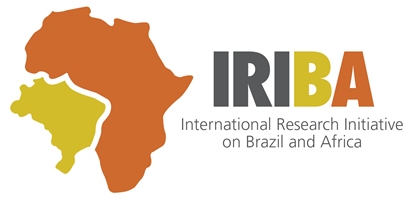Brazil: through the eyes of favela dwellers and government ministers
For the Brazilian minister for Social Development, Tereza Campello, ‘teaching a man to fish’ is only part of the story. You also need to show him the way to the river and if he’s too hungry to fish in the first place – just give him some of your fish! Campello’s impassioned take
The 5 key points to understanding Brazil’s development progress
We recently published a briefing giving a 10-point summary of our main findings from the first phase of the IRIBA project. This has been well-received, particularly by some of our academic colleagues. However, we wondered if the list could be boiled down further, especially for the bu
Bridging the urban-rural divide in Africa
The next edition of the African Economic Outlook will investigate how to bridge the urban-rural divide in African countries. With many African states struggling to translate impressive headline rates of economic growth into tangible improvements for the poorest people living in rural
November 11, 2014
Comments are off
Event: A Brazilian model of development?
We’re teaming up with the Johns Hopkins School of Advance International Studies (SAIS) in Washington to hold a debate on the Brazilian model of development and its implications for African countries. Brazil has emerged as a globally significant economic power in the last decade,
4 big issues for Dilma’s second term
With Dilma Rousseff narrowly winning a second term as president of Brazil, IRIBA research director Ed Amann looks at the four big issues her administration must grapple with over the next four years: Consensus for reform The achievement of consensus inside and outside Congress to push
November 04, 2014
Comments are off
New UNU-Wider paper on the Brazilian development model
At the start of the IRIBA project a year ago, co-research directors Armando Barrientos and Ed Amann presented their initial thinking on the Brazilian model and its implications for African countries to a UNU-Wider conference on inclusive growth. With the first phase research no
The Brazilian model of agricultural development
Today Brazil is one of the major producers of a series of agricultural commodities, including soybeans, sugar, orange juice, maize, cotton, chicken, meat and pigs, with strong participation in a long list of others. The position of Brazilian agriculture as one of the breadbaskets of t
How Brazil has reduced inequality
The sustained decline in Brazilian inequality levels has been of the most striking aspects of its development performance over the last 10 years. In addition to raising an estimated 40 million people out of poverty, the Brazil’s GINI coefficient fell by 12%, from 0.59 in 1995 to 0.52
Tax and the social contract in Brazil
“Brasil” by Roger Schultz (CC BY 2.0) By Marcus Melo, professor of Political Science at the Federal University of Pernambuco, Brazil, and Armando Barrientos, co-research director of IRIBA. Cross-posted from the Tax Justice Network blog. Internationally, debates on tax in Brazil ofte
Event: UK-Brazil social development dialogue
On November 14, IRIBA co-research director Armando Barrientos will be participating in a UK-Brazil dialogue at the LSE, alongside Brazilian Minister for Social Development, Tereza Campello. The event is being organised by the always interesting Favelas@LSE and tickets are available vi
© IRIBA 2014 | All rights reserved I Google+
Hosted by The Brooks World Poverty Institute
